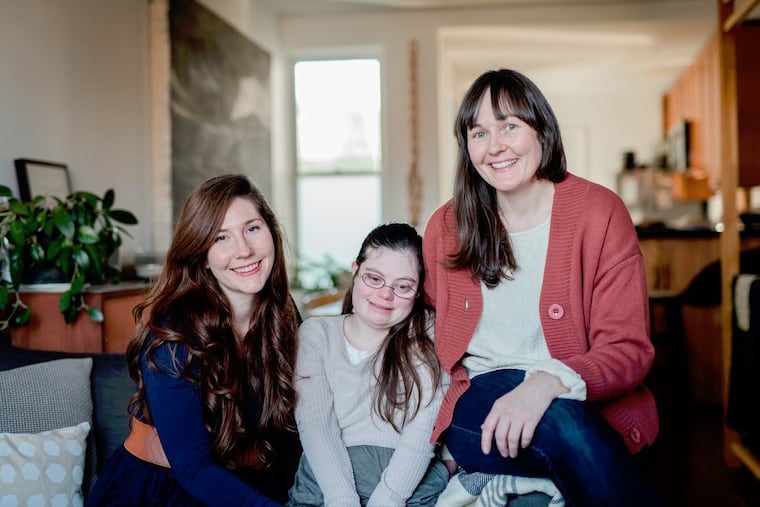Neither the pandemic nor cancer can keep the Dance Happy design team from thriving
Dance Happy Designs has emerged from the pandemic - and a co-owner's leukemia diagnosis last year - stronger than ever.

The last time I wrote about Dance Happy Designs, the company was on a roll.
Co-owners Emily Scott, Julia Tyler, and Liv Helgesen had just come off the 2019 holiday gift-giving season with a huge win under their belt. Aerie — a brand of the behemoth American Eagle apparel company — had contracted with the women to do online sales of Dance Happy’s handmade canvas tote bags. The merch sold so well, Aerie was in talks with the company about a new order.
And then Madewell, a popular brand of the gigantic J. Crew company, put in an order for products to be sold during the following holiday season.
I wanted to write about Dance Happy’s growing success because the trio who owns the company has a beautiful backstory. They met in 2012 when Scott, who owned a Swarthmore boutique at the time, hired Tyler, who has Down syndrome, to handle some part-time inventory tasks at the store. Tyler had a job coach, Helgesen, who helped her learn her tasks.
Helgesen has an art background, and she thought Tyler had her own creative bent. So she set up an art studio in the boutique’s basement and taught her how to silk-screen images — cutout geometric shapes that Tyler created — onto canvas. Scott would then sew the finished fabric into funky tote bags, pillow covers, table runners, and the like, which the women then sold at the store, online, and at craft fairs.
In 2016, they formalized their partnership, naming it Dance Happy because Tyler, who is always happy, loves to dance. Revenues were not huge, but the product line was expanding, as were Tyler’s abilities and sense of independence.
So in January of 2020, when I heard about the company’s blossoming success, I told the story for UpSide. I was deeply moved by how Dance Happy celebrates differences in a world that often constrains them, and I thought readers would be, too.
Shortly after publication, two things happened that threatened Dance Happy’s future: The pandemic hit. And Tyler got cancer.
“We thought she had a really bad flu, it was lasting weeks,” said Tyler’s father, Jim, speaking for his daughter, who is shy and mostly nonverbal. “She was so weak and tired.”
Tests revealed leukemia. Tyler was admitted to CHOP, where she spent the next five months undergoing inpatient treatment.
Meantime, Scott said, she and Helgesen were reeling. Their first concern was for Tyler’s survival. The women all cherish each other. Their second was for Dance Happy’s survival. It’s a challenge for adults with disabilities to find employment at all, let alone jobs that they love. Scott and Helgesen needed Dance Happy to stay healthy so that Tyler had meaningful work to return to when she was healthy, too.
“We found creative ways to continue to work together, so Julia was able to fully participate in putting together the [holiday] collection for Madewell,” said Scott, no easy task since the pandemic prohibited hospital visits. So Scott and Helgesen used FaceTime, calls, and texts to keep Tyler and her parents in the loop.
“Even though she was feeling weak and couldn’t actually do the physical work, she could still be present for our team meetings and decisions and that was super important to us,” said Scott. “It’s her business, too. And we wanted to make sure that, no matter what, she always knew that. We are like a little family and we can lean on each other when we need to.”
The company was able to produce the inventory needed for Madewell’s holiday line, the goods were a smash success, and Dance Happy is now busy on a big, hush-hush summer venture that will likely take their growth to a whole new level. The company is also about to open a small studio in Swarthmore, where they’ll also host monthly pop-up sales and offer pickup services for online orders.
But the best news of all is that Tyler is back home, in remission, and creating more designs that will soon grace Happy Dance products. She has another 18 months of treatment ahead of her, but she’s feeling better every day, say her parents.
And even when she’s not dancing, she’s happy.